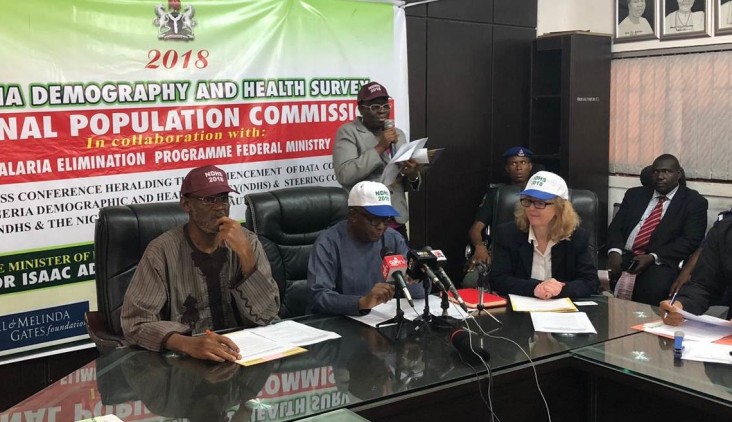Press Release Shim
Speeches Shim

Comprehensive data will help Nigeria monitor and assess the health status of the population
For Immediate Release
Abuja – At a press conference on August 16, 2018, U.S. Agency for International Development (USAID) Acting Mission Director Erin Holleran joined the Honorable Minister of Health Prof. Issac Adewole to announce the 2018 Nigeria Demographic Health Survey (DHS) that will provide comprehensive data to monitor and assess the health status of the population.
This will be the sixth such study carried out in Nigeria, with one DHS having been conducted about every five years since 1990. The survey promises to provide reliable estimates of health indicators that will inform health programming and targeting of both Government of Nigeria and donor assistance for the coming years.
“This survey will give us concrete answers about where we have made progress in the last five years, and critical information on the areas where we need to concentrate to make a difference in the lives of Nigerians going forward,” Dr. Holleran said at today’s press briefing at the Federal Ministry of Health.
Through the survey, data will be collected on issues such as:
- fertility levels and preferences,
- breastfeeding practices,
- nutritional status of mothers and young children,
- early childhood mortality and maternal mortality,
- maternal and child health,
- malaria infection rates and prevention practices, and
- domestic violence.
For the first time, the 2018 NDHS will also provide estimates of anemia prevalence among children age 6-59 months and adults, as well as estimates of malaria prevalence among children age 6-59 months.
USAID is the principal funder of the 2018 DHS, providing approximately $7.7 million of the $9.5 million costs of the survey. Other donors include the Global Fund, the Bill and Melinda Gates Foundation, and the Dangote Foundation. The Government of Nigeria will contribute $1.13 million in human and physical resources, as well as advocacy and monitoring.
In her remarks, Dr. Holleran added that malaria, pneumonia, and diarrhea are all preventable and treatable diseases and, with this survey, Nigeria will be able to measure successes and as well as identify the challenges in mitigating the impact of these diseases. “More than half of newborn deaths,” she added, “could be eliminated if women have access to high quality antenatal care, skilled attendance at birth, proper newborn care, and access to high quality routine immunizations that would save hundreds of thousands of young children’s lives every year.”

Comment
Make a general inquiry or suggest an improvement.